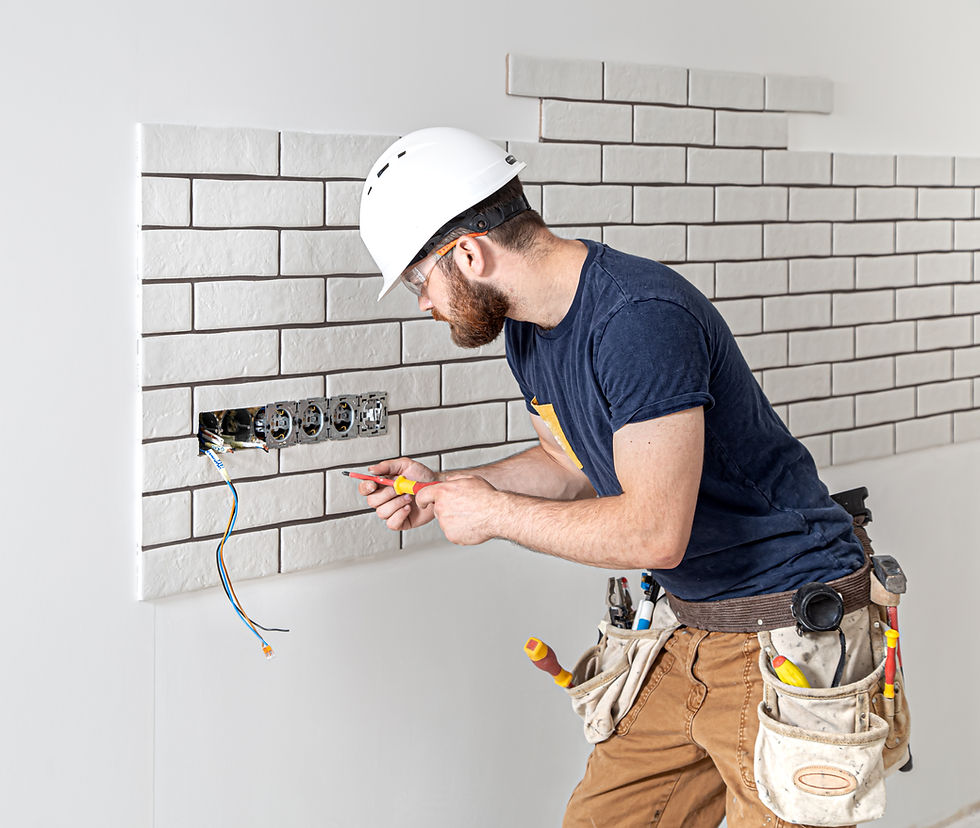How to Troubleshoot Common Electrical Problems at Home
- John Shaw
- Mar 18, 2025
- 2 min read

Identifying Electrical Issues in Your Home
Electrical problems can be frustrating and, if left unresolved, may pose safety risks. Understanding common issues and knowing when to call an electrician can help maintain a safe and functional system. While some minor faults are easy to fix, complex problems often require professional attention.
Frequent Circuit Breaker Tripping
A tripping circuit breaker signals an overloaded circuit, faulty wiring, or a short circuit. To troubleshoot:
Unplug appliances from the affected circuit and reset the breaker.
If it trips again, the issue could stem from faulty wiring or an overloaded circuit.
Contact electrical contractors & services if the problem persists.
Flickering or Dimming Lights
Lights that flicker or dim unexpectedly may indicate loose wiring, an overloaded circuit, or an issue with the power supply.
Check if multiple appliances are running on the same circuit.
Secure any loose lightbulbs or switches.
Persistent flickering may require electrical rewiring to prevent further damage.
Dead Outlets or Switches
If an outlet or switch stops working, the cause could be a tripped breaker, a blown fuse, or faulty wiring.
Test the outlet by plugging in different devices.
Inspect the circuit breaker panel for any tripped breakers.
If multiple outlets fail, consider rewires to update the wiring.
Unusual Burning Smells or Scorch Marks
A burning smell or discoloured outlets indicate overheating or electrical arcing.
Immediately switch off power from the main panel.
Avoid using affected outlets or switches.
Contact an electrical technician to assess the issue safely.
Buzzing Sounds from Electrical Fixtures
Electrical components should operate silently. Buzzing sounds may suggest loose connections or improper wiring.
Check for any visible damage around outlets or switches.
Avoid tampering with electrical wiring.
Schedule electrical repairs to fix the issue before it worsens.
Safety Measures When Troubleshooting Electrical Problems
1. Always Turn Off Power
Before inspecting any electrical component, switch off the power supply from the main panel to avoid shocks.
2. Avoid DIY Electrical Repairs
While simple fixes like changing bulbs are safe, working with wiring and circuits requires professional expertise.
3. Use the Right Tools
If testing an outlet or switch, use an insulated screwdriver and voltage tester to check for live currents.
When to Call a Professional Electrician
Some electrical problems require immediate professional intervention. Contact electrical contractors & services if you notice:
Sparks or small electric shocks when using switches.
A persistent burning smell near outlets or panels.
Multiple outlets or circuits failing simultaneously.
An outdated wiring system requiring electrical rewiring.
Conclusion
Troubleshooting electrical problems helps prevent safety hazards and costly repairs. Identifying minor issues early can save time, but serious concerns demand expert assistance. Regular inspections and prompt electrical repairs ensure a secure home.
For expert assistance, Rytec Electrical offers professional rewires, electrical rewiring, and repair services, ensuring a safe and efficient system for your home.



Comments